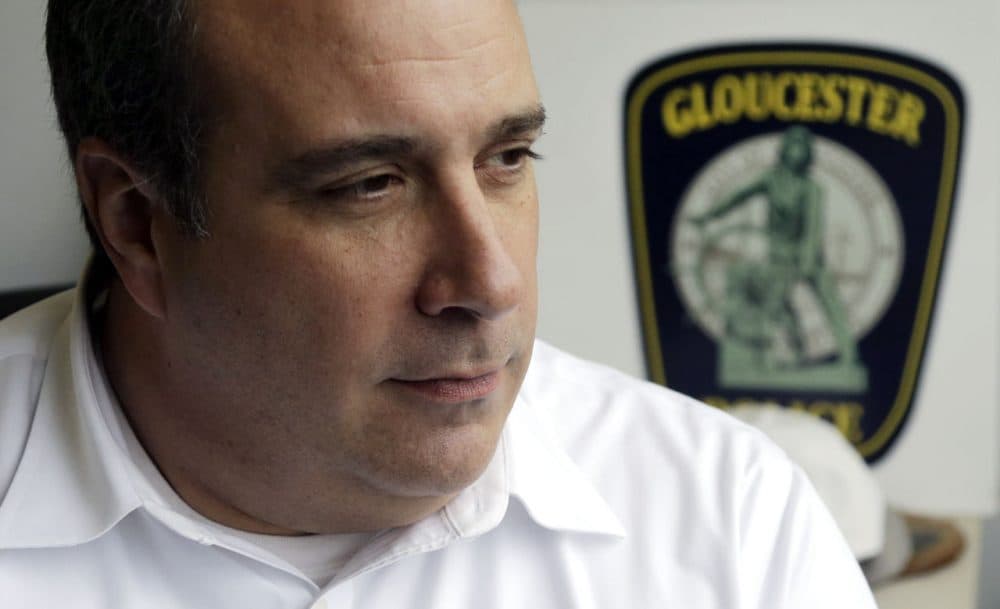Advertisement
On Its First Day, A Slow Start For Gloucester's Drug Treatment 'Angel Program'
Resume
Gloucester police have officially started a program to help deal with the opioid epidemic. Instead of arresting drug users, police will help them get into treatment.
But on Monday — the first day of the program — no one came to police looking for help — and there are some who question whether anyone will.
'A Slow-Growing Process'
Gloucester Police Chief Leonard Campanello is not surprised that active drug users weren't flocking to his station on Monday.
"I expect this particular portion of it to be a slow-growing process," he said.
Campanello officially started what many are calling "the Angel program." That's where those struggling with addiction can go to the police station, turn in their drugs, and get assigned a so-called angel — a person who would meet them at the nearest hospital owned by Lahey Health and navigate what is often a complicated process.
"We do a short intake with the person who comes to the station," the chief said, "we contact an angel, we transport the person to the hospital where they're met by the angel, handed off by the officer to the angel, and then Lahey has agreed to fast track the individual toward treatment."
Aside from Lahey Health, though, no other Massachusetts addiction treatment provider is among the 17 that have contacted Gloucester to offer their services. State officials do acknowledge that there is not enough treatment to meet demand in Massachusetts.
California treatment provider Gateway to Hope was in Gloucester on Monday offering to help.
"This area struggles so greatly, and so I hope that people will not be scared of the police and really take the opportunity to get this help," said Lindsey Stewart, Gateway to Hope's director of operations.
Trust in police could be an obstacle. While many people applaud Campanello for trying a new approach to the problem, they're skeptical.
"I don't feel that a person who is addicted to drugs is going to feel welcome at the police station," said Rosemary Stankiewicz, who runs the Gloucester meetings of the group Learn 2 Cope, a support group for those whose loved ones are struggling with addiction. "They basically, I don't think, trust the police because there's been many instances in their lives where they were put down or made to feel like scum because they were drug addicts."
There's also skepticism after the district attorney wrote to Campanello last month informing him that police are limited by law about making promises not to charge someone with a crime. Essex County District Attorney Jonathan Blodgett's letter says Campanello may not have the legal authority to make those promises. But the chief says officers have discretion such as when to write speeding tickets or take back illegal guns.
"There's no question about the legality here," he said Monday. "It's been vetted through our legal team here in the city and through the mayor's office. It's steeped in precedent, as the gun buyback program is."
Another question many are asking: Why wouldn't someone avoid the risk and just enter treatment? Why bother going to the police at all?
"I don't think that's the point," Campanello said. "I think the point is that we're offering ourselves as a safe haven, and we're trying to build trust with that demographic as well. We shouldn't really even have to be at this point where the police are involved in this. But we recognize addiction as a disease and so other entities as well should."
Campanello says the war on drugs has failed. His ultimate goal is to continue talking wtih state and federal officials about ways to deal with the opioid epidemic that break the cycle of repeatedly arresting the same people for being addicted to drugs.
This segment aired on June 2, 2015.
